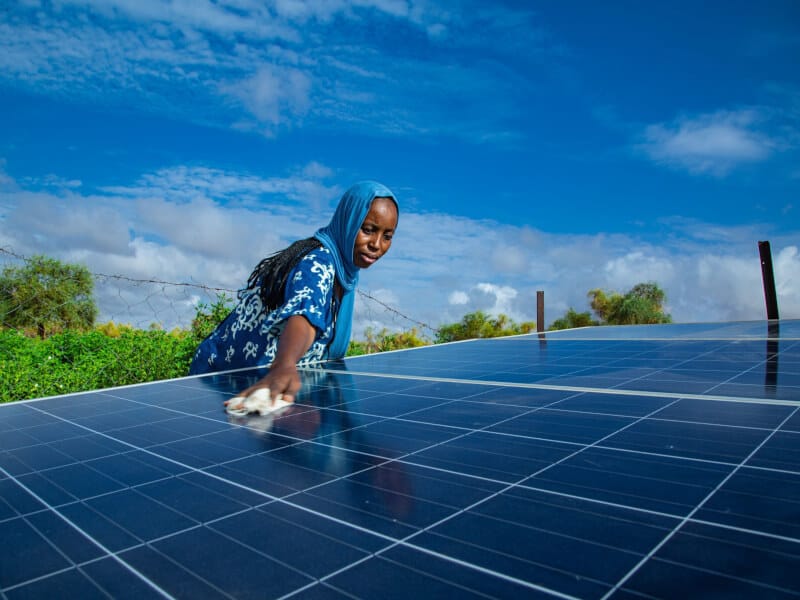A liberated future in Africa
By Nolita Mvunelo, Program Manager, The Club of Rome
13 June 2023

Four revolutions will nurture a liberated future in Africa.
Since the dawn of the 20th century, humanity has been sounding the alarm on the profound impact of our actions on climate and the environment. It has become increasingly clear that the escalating consequences of climate change are mere symptoms of a system deeply rooted in exploitation. Despite the efforts of multilateral organisations, governments, businesses, and civil society, breaking free from this paradigm has proven to be a formidable challenge.
Nowhere is this struggle more evident than in the intricate web of issues facing regions worldwide, particularly the African continent, still burdened by the legacy of exploitative colonial practices. However, amidst these trials lie the seeds of a revolutionary transformation. With Africa’s vast expanse of uncultivated arable land accounting for a staggering 65% of the global total, and an estimated 42% of the world’s youth set to reside in Africa by 2030, the future undeniably belongs to this continent.
Yet, realising this future will not occur spontaneously, it demands the unwavering pursuit of four pivotal revolutions that pave the path towards global equity and a thriving biosphere.
Liberating from the grasp of past liberators
The leaders of African decolonial movements have yet to truly deliver a just and equitable future. Revolutionary ambition has been replaced by political and financial ambition, reinforcing the exploitative model their fellow people fought against. The challenge of this generation is to reimagine and rebuild a political framework that restores African civilisations, prioritising an ethos of relational wellbeing.
Building a business landscape of the future
A successful political paradigm shift must be paired with a business landscape geared towards society-building, not solely wealth accumulation. This is increasingly important when considering the youthfulness of the population amidst a landscape of rapid technological advancement. Liberating the future will require more than facilities, infrastructure, and energy availability. It is about creating a self-interrogating business sector that embraces regenerative models to equitably meet the needs of current and future generations.
Embracing circularity and sustainability
Addressing material needs, however, is not without its complexities. Equitably meeting the needs of current and future generations requires a community-centered approach to ensure that Africa, its people, and its resources are best positioned to serve humanity. This calls for an investment in research closely tied to addressing societal challenges. It goes beyond circularity in the movement of materials in society; it requires a circularity of knowledge exchange where governments, businesses, and communities learn through open communication and collaboration channels.
Moving from globalisation to global cooperation
The final revolution requires rejecting neo-colonial economic and political relationships favoring collaboration between nations that respect autonomy and sovereignty. Increased globalisation has reinforced the exploitation of African natural and human resources. A shift to global cooperation requires mutuality to pursue common goals and address global challenges, emphasising shared responsibilities and goals. Mutuality necessitates more robust local governance and agency of all actors, making them less vulnerable to ecological and socio-economic abuse and destabilisation.
These four revolutions are profoundly complex and interdependent. By nurturing a liberated future in Africa, we can build a foundation for global systemic transformation – reimagining civilisation from the world’s first civilisation.
First published in IE Insights

